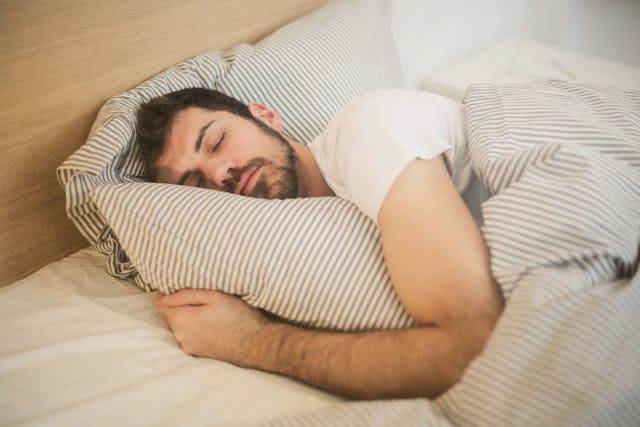Introduction: Why We’re More Tired Than Ever
Have you ever laid in bed, exhausted, only to have your brain kick into overdrive? You’re not alone. Stress and poor sleep have become a vicious cycle in modern life. The more stressed we are, the harder it is to sleep—and the less sleep we get, the more overwhelmed we feel.
The good news? You don’t need sleeping pills or expensive gadgets to improve your rest. You can start sleeping better tonight with a few simple, natural strategies.
In this blog, we’ll explore the science of stress and sleep, the connection between the two, and practical ways to fall asleep faster, stay asleep longer, and wake up feeling refreshed.
The Connection Between Stress and Sleep
Stress and sleep are deeply linked. Here’s how it works:
-
When you’re stressed, your body produces more cortisol (the stress hormone), which keeps you alert. That’s helpful in an emergency—but terrible when you’re trying to fall asleep.
-
When you don’t sleep well, your cortisol levels stay elevated, which increases anxiety, irritability, and inflammation. This can trigger even more stress.
It becomes a loop: Stress → Poor Sleep → More Stress.
To break the cycle, you need to address both sides: calm your mind and support your body.
10 Natural Tips to Sleep Better (Even on a Stressful Day)
1. Create a Consistent Sleep Schedule
Your body thrives on routine. Going to bed and waking up at the same time each day helps regulate your circadian rhythm (your internal clock).
-
Why it works: A stable rhythm trains your body to feel sleepy and wakeful at the right times.
-
Tip: Stick to your schedule—even on weekends—for the best results.
2. Limit Blue Light Before Bed
Phones, TVs, and computers emit blue light, which tricks your brain into thinking it’s daytime.
-
Why it matters: Blue light reduces melatonin, the hormone that makes you sleepy.
-
What to do: Turn off screens at least 60 minutes before bed, or use blue-light blocking glasses or night mode settings.
3. Try a Wind-Down Routine
Your body needs signals that it’s time to relax. Just like kids have bedtime rituals, adults benefit from them too.
-
Ideas:
-
Warm shower or bath
-
Reading a physical book
-
Soft music or calming herbal tea
-
Journaling or writing tomorrow’s to-do list (to clear mental clutter)
-
4. Cut Caffeine After 2 PM
Caffeine can linger in your system for 6–8 hours. Even if you don’t “feel” it, it might still affect your sleep quality.
-
Alternatives: Try herbal tea, golden milk, or warm lemon water in the evening instead.
5. Use Natural Supplements Wisely
Some natural supplements can promote better sleep without side effects.
-
Magnesium: Helps relax muscles and calm the nervous system.
-
Melatonin: A short-term solution if your sleep cycle is off (like after travel).
-
Chamomile or Valerian root: Herbal options that calm the mind.
Note: Always check with your doctor before starting supplements, especially if you’re on medication.
6. Move Your Body (But Not Too Late)
Exercise reduces cortisol and helps burn off anxious energy. But avoid intense workouts late at night.
-
Best timing: Morning or early afternoon.
-
Great options: Walking, yoga, swimming, or light cardio.
7. Create a Sleep-Friendly Environment
Your bedroom should be a sleep sanctuary. Here’s how to set the stage:
-
Cool temperature (around 65°F or 18°C)
-
Blackout curtains or eye mask
-
White noise machine or fan
-
Comfortable, clean bedding
-
No screens in bed!
8. Practice Breathing or Meditation
Even five minutes of deep breathing can flip your nervous system from “fight or flight” to “rest and digest.”
-
Techniques:
-
Box breathing (inhale 4, hold 4, exhale 4, hold 4)
-
4-7-8 breathing
-
Guided sleep meditations (try apps like Calm or Insight Timer)
-
9. Avoid Late-Night Sugar and Heavy Meals
A heavy or sugary snack late at night can disrupt your sleep cycle by causing blood sugar spikes.
-
Best bedtime snacks: A banana with almond butter, Greek yogurt, or a small handful of nuts.
10. Let Go of “Sleep Anxiety”
One of the most frustrating parts of sleep trouble is worrying about not sleeping. The more you stress about it, the harder it becomes.
-
Mindset shift: Instead of forcing sleep, focus on resting. Tell yourself:
“It’s okay if I don’t fall asleep right away. Rest is still helpful.”
This reduces pressure and helps you drift off more naturally.
Bonus: Morning Habits That Support Better Sleep
Your night starts in the morning. Here are daytime choices that improve sleep:
-
Get natural sunlight in the first 30–60 minutes after waking
-
Avoid naps after 3 PM
-
Eat balanced meals to stabilize energy levels
-
Reduce overall stress with mindfulness, movement, or journaling
When to See a Doctor
If you’ve tried these natural methods and still struggle with chronic insomnia, sleep apnea, or constant fatigue, talk to a healthcare provider. There could be an underlying condition like hormone imbalances, anxiety, or even nutrient deficiencies.
Final Thoughts: You Deserve Deep, Restful Sleep
Sleep isn’t a luxury—it’s a biological necessity. It’s where your body heals, your mind resets, and your emotions stabilize.
Instead of chasing a perfect routine, start with just one or two changes tonight. Maybe that’s turning off your phone an hour earlier or trying deep breathing as you lie down.
Over time, these small shifts can help you fall asleep faster, sleep deeper, and wake up ready to handle whatever life throws your way.





